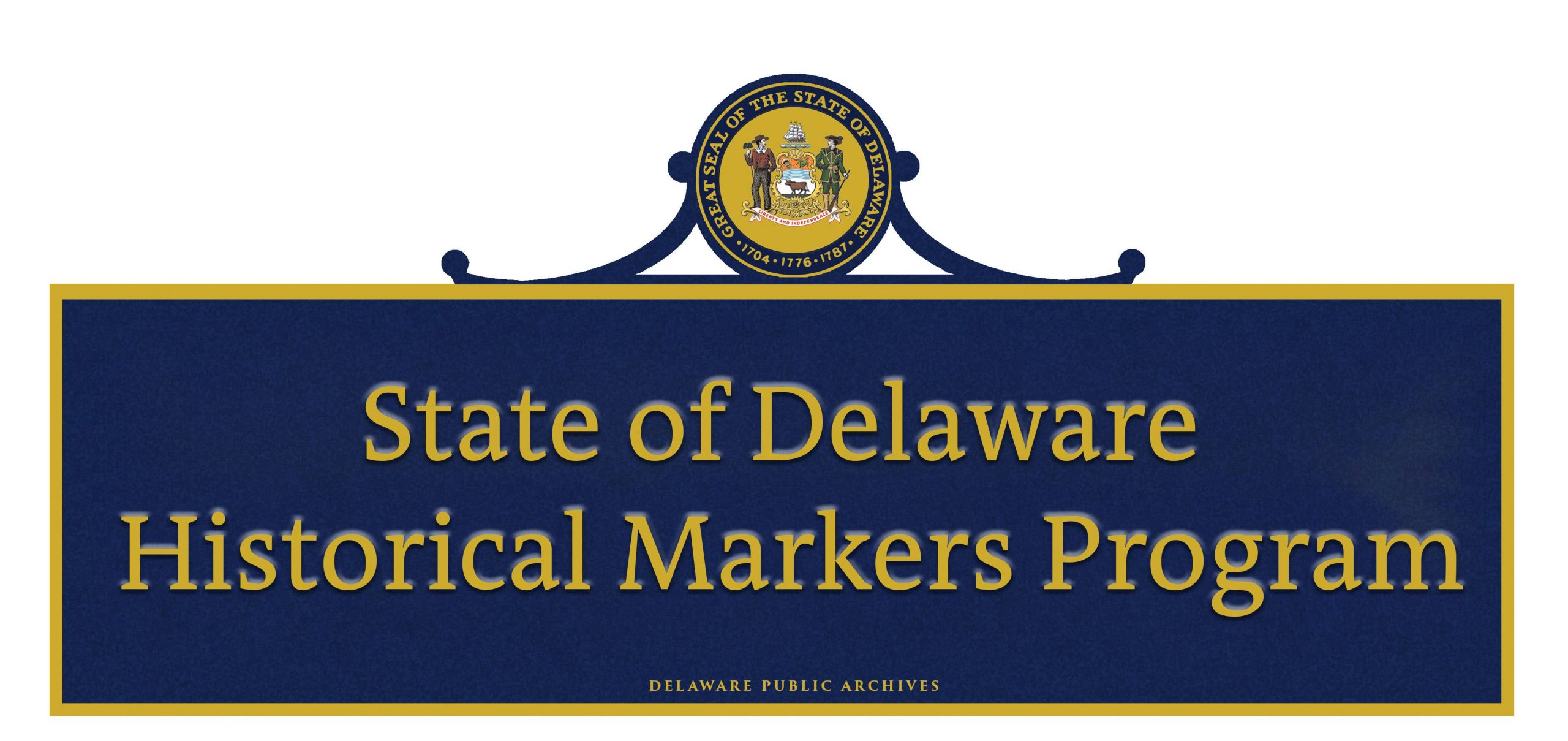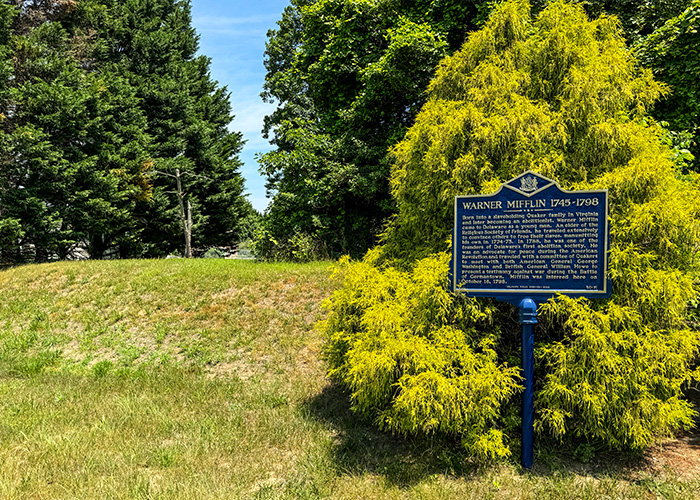


2022 Text:
Born into a slaveholding Quaker family in Virginia and later becoming an abolitionist, Warner Mifflin came to Delaware as a young man. An elder of the Religious Society of Friends, he traveled extensively to convince others to free their slaves, manumitting his own in 1774-75. In 1788, he was one of the founders of Delaware’s first abolition society. He was an advocate for peace during the American Revolution and traveled with a committee of Quakers to meet with both American General George Washington and British General William Howe to present a testimony against war during the Battle of Germantown. Mifflin was interred here on October 16, 1798.
2005 Text:
A native of Virginia’s Eastern Shore, Mifflin came to Delaware as a young man. Born into a slaveholding Quaker family, he manumitted his own slaves in 1774-75 and later became one of America’s foremost abolitionists of the 18th century. As an elder of the Religious Society of Friends, he traveled extensively to convince others to free their slaves. He addressed the legislatures of several states and presented numerous petitions and memorials to the United States Congress opposing slavery and the abuse of free blacks. In 1788, he was one of the founders of Delaware’s first abolition society. Warner Mifflin was recognized internationally for his antislavery efforts and is credited with assisting a great number of African-Americans in obtaining their freedom. He was an advocate for peace during the American Revolution. At the time of the Battle of Germantown, Mifflin was a member of a committee of Quakers that traveled to meet with both American General Washington and British General Howe to present testimony against war. He was laid to rest here following his death on October 16, 1798. Warner Mifflin was widely known and respected for his brave efforts to promote “righteousness, mercy, and peace, among mankind.”
Installed in 2003. Reinstalled in 2022.
The Honorable Margert Rose Henry, Delaware State Senate, 2003.
State of Delaware Historical Markers Program, 2022.
5165 S. State Street, Magnolia, DE 19962